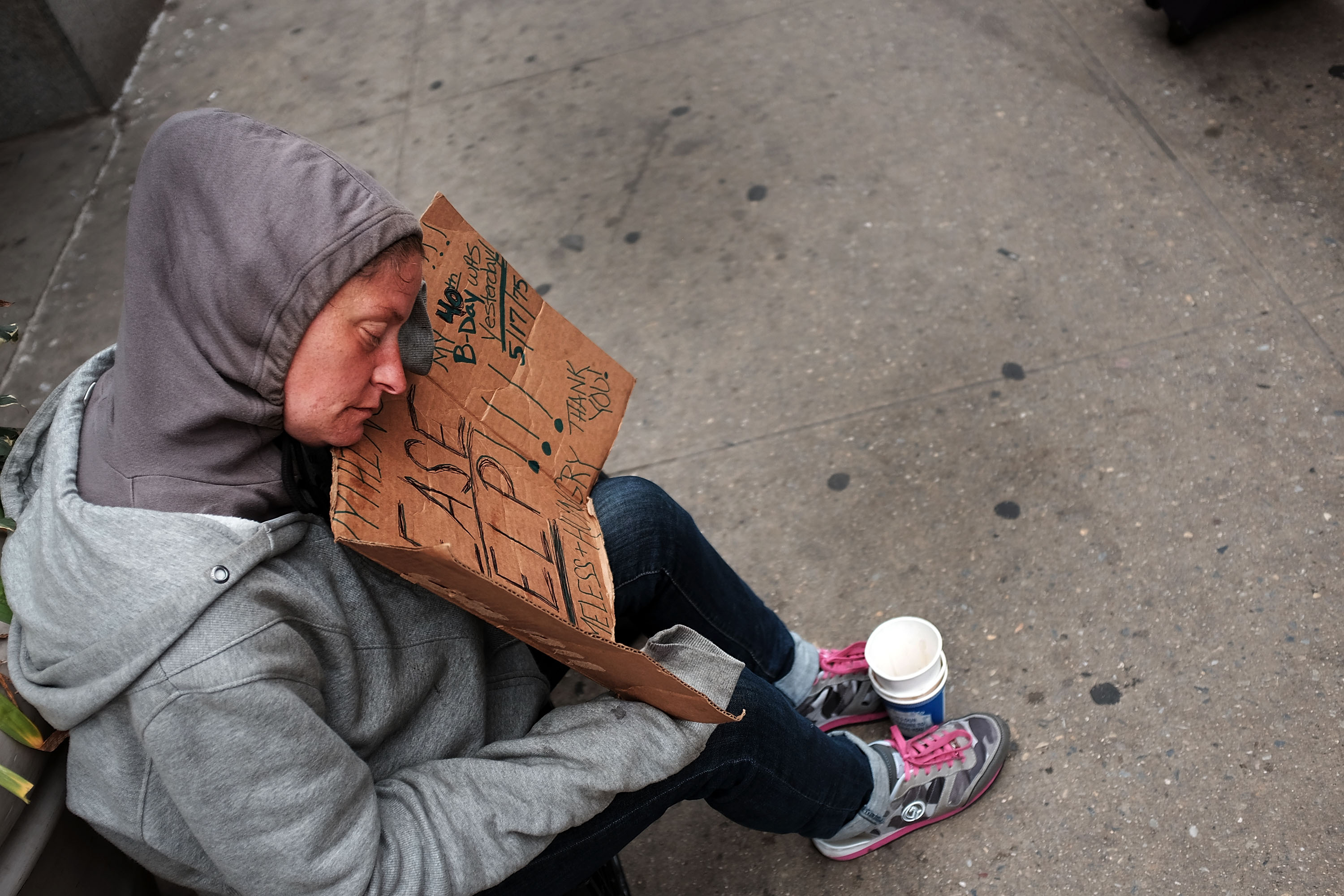What this new experiment in Chicago can teach us about combating poverty
A tweak to a powerful anti-poverty tool is yielding encouraging results


A free daily email with the biggest news stories of the day – and the best features from TheWeek.com
You are now subscribed
Your newsletter sign-up was successful
In an age of rising inequality and stagnating incomes, we must look for ways to get smarter about fighting economic insecurity. This means adapting successful anti-poverty interventions to meet the needs of low-income Americans.
Take the Earned Income Tax Credit. Though it was once a small tax break for the working poor, it has since morphed into our most valuable tool against working-age poverty in the wake of 1990s welfare reform. Every year, the EITC provides as much as $6,000 in additional income to low-income families and saves more than six million people from poverty. This dwarfs the reach and impact of what remains of traditional welfare.
So when we talk about the EITC, we are really talking about our principal anti-poverty program in the 21st century. What's odd is that we've submerged such an important program in our tax code. And because the EITC provides a single annual income boost via a tax refund, we've created a boom-and-bust cycle for low-income families: They are flush during tax season, but stretched thin during the rest of the year.
The Week
Escape your echo chamber. Get the facts behind the news, plus analysis from multiple perspectives.

Sign up for The Week's Free Newsletters
From our morning news briefing to a weekly Good News Newsletter, get the best of The Week delivered directly to your inbox.
From our morning news briefing to a weekly Good News Newsletter, get the best of The Week delivered directly to your inbox.
A policy experiment in Chicago has tried to fix this. In a pilot program run by the Center for Economic Progress, 343 families signed up to receive half of their anticipated EITC over four quarterly payments. So a family that expected to receive a $4,000 EITC (based on what they received the year before) would get a $500 check every three months, and the remaining $2,000 as a tax refund.
This pilot yielded extremely promising results. Compared to similarly situated families receiving the traditional lump sum EITC, families receiving periodic payments found themselves with newfound financial stability and more disposable income, and relied less on high-interest debt and predatory loans. These families experienced less financial stress and improved mental health. Ninety percent said they would sign up for periodic payments again if they could.
The Chicago pilot also showed that the typical concerns about periodic payments miss the mark. Some policy thinkers argue that the lump sum EITC is preferable because it acts as forced savings for low-income families. They worry that advance payments put low-income families at risk of owing the government money during tax season. And they believe that tying the EITC to our tax system promotes dignity and avoids stigma.
In the Chicago pilot, however, the families that received periodic payments saved more than those that received a lump sum EITC. The first step to building savings, of course, is avoiding debt. For families living paycheck to paycheck, the extra income from the periodic payments was the difference between covering basic expenses and falling into costly short-term debt. Indeed, studies have found that as much as 40 percent of EITC refund dollars are spent paying down bills and debt. For many, withholding a family's earned benefits until tax season doesn't help them save — it forces them into the red.
A free daily email with the biggest news stories of the day – and the best features from TheWeek.com
Very few participating families in Chicago had to worry about owing money on their taxes, either. Only four out of 343 participants received greater advance EITC payments than they were owed. Limiting the periodic payments to half of a participant's EITC helped cushion families from unfortunate tax surprises. Moreover, we've grown increasingly comfortable with the commonsense idea that tax subsidies should be timed to meet specific needs, and should tolerate slight overpayment to further protect families from tax risk. ObamaCare does this, coupling advance premium tax credits for purchasing insurance with a small safe harbor for overpayment.
Policy experts Laura Tach and Kathryn Edin praise the current EITC because it gives families a sense of dignity. Because it is administered through tax preparation centers, "low-wage workers are customers served with a smile, not supplicants seeking a handout." However, for the 60 percent of EITC recipients who rely on for-profit tax preparers, this dignity comes with a cost, and often a hefty dose of exploitation. Tax prep offices have peddled high-interest refund advances and costly deferrals on tax prep fees to low-income filers. The demand for these products despite their exorbitant costs only affirms the need for a government-provided periodic payment option.
What's more, we can avoid problems of stigma or embarrassment by having workers sign up for periodic payments through the government directly, rather than through their employers. And given that the EITC aims to promote the dignity of work, making periodic payments during the course of the work year would reward work more directly and more often.
We should learn from Chicago and let the EITC shore up working families' budgets year-round. Indeed, policymakers on both the right and left are already thinking along these lines. Smart policy would let workers tap into their hard-earned benefits to gain financial breathing room year-round, not just during tax season.
Joel Dodge writes about politics, law, and domestic policy for The Week and at his blog. He is a member of the Boston University School of Law's class of 2014.
